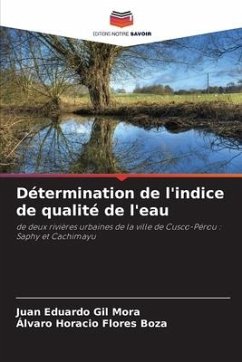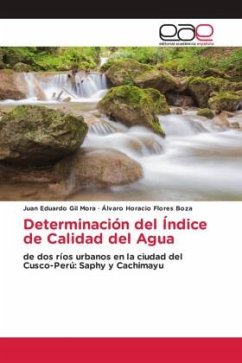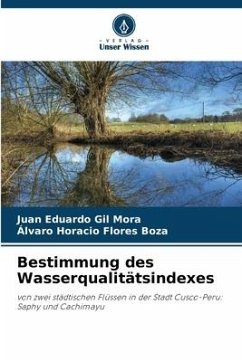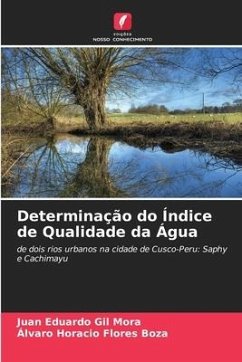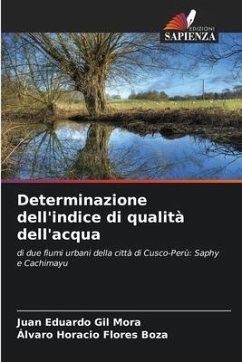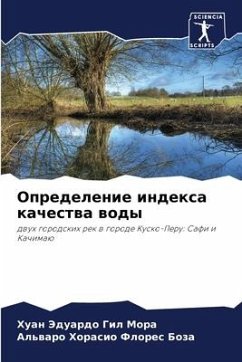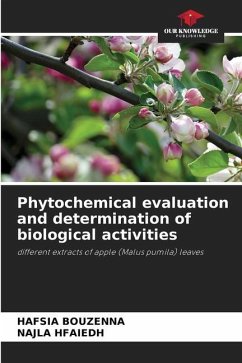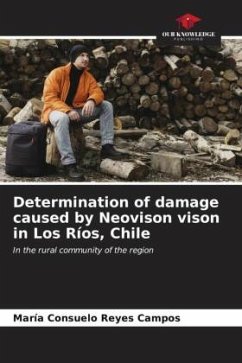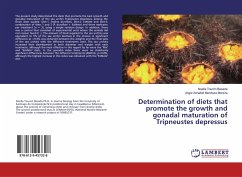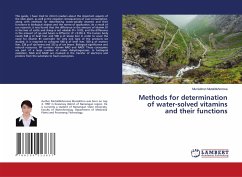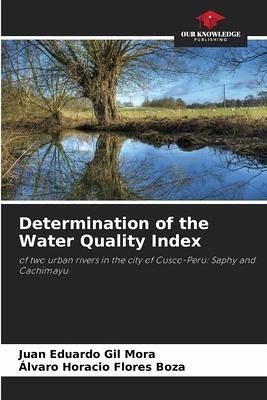
Determination of the Water Quality Index
of two urban rivers in the city of Cusco-Peru: Saphy and Cachimayu
Versandkostenfrei!
Versandfertig in 6-10 Tagen
40,99 €
inkl. MwSt.

PAYBACK Punkte
20 °P sammeln!
The Saphy and Cachimayu rivers constitute an environmental problem in Cusco, because they are the recipients of domestic effluents, debris and solid waste, use of phosphate detergents, etc. Their waters contain organic and inorganic pollutants, posing a risk to public health. It is important to determine the loss of quality of both rivers in order to propose policies and programmes for minimisation, control and recovery; the objective of the research was to calculate the Water Quality Index (WQI) for both rivers, which serves as a uniform method to measure the water quality of rivers with simi...
The Saphy and Cachimayu rivers constitute an environmental problem in Cusco, because they are the recipients of domestic effluents, debris and solid waste, use of phosphate detergents, etc. Their waters contain organic and inorganic pollutants, posing a risk to public health. It is important to determine the loss of quality of both rivers in order to propose policies and programmes for minimisation, control and recovery; the objective of the research was to calculate the Water Quality Index (WQI) for both rivers, which serves as a uniform method to measure the water quality of rivers with similar characteristics. The determination of the WQI was carried out following the NSF methodology; by applying this methodology the loss of quality was identified in two rivers that need to be conserved: the Saphy river decreases the WQI from 72 to 45 and the BOD5 increases 32 times; the Cachimayu river shows evident loss in its quality, the faecal coliforms increase 5 times at the end of its course; these urban rivers when studied become models for the water management of watercourses, therefore, useful for replication in research in similar rivers.



